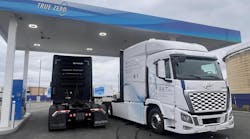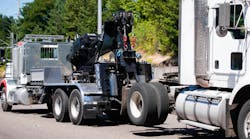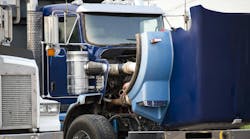Livermore, CA-based Lawrence Livermore National Laboratory (LLNL) has unveiled the latest version of its remote-controlled truck stopping device.
This is the same technology commissioned by and created for the California Highway Patrol to prevent tankers and other hijacked vehicles from being used in a terrorist attack.
The new version is considered to be the fourth generation of truck stopping technology. It features bolstered tamper-resistant and fail-safe systems, LLNL said.
“In a roadside emergency, patrolmen would use a hand-held controller to activate the device, which now sits behind the cab of a tractor-trailer to deploy the air brakes and bring the (vehicle) to a screeching halt,” LLNL stated in a release. Additionally, an antenna system could be deployed around a building to automatically activate the device if a truck passes by.
Dave McCallen, LLNL’s engineering directorate, said he envisions placing the device on a vehicle at a facility’s inspection point. The device would be locked in a tamper-proof box that could be removed once the truck left the facility.
LLNL engineers also considered interference from other radio frequencies, such as cell phones, to prevent hackers from interrupting signals or setting the device off, McCallen said.
The devices cost approximately $800 apiece.
Truck stopping technology was deployed by former California Gov. Gray Davis and the California Highway Patrol following the attacks of Sep. 11, as well as during a January 2001 attack on the state Capitol by a driver of a fuel tanker, LLNL said.
Lawrence Livermore National Laboratory is part of the National Nuclear Security Administration within the Department of Energy.


